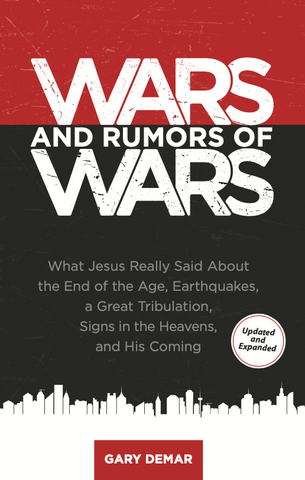Gary responds by looking at a few of the Bible verses used in the “Unorthodox Eschatology” statement.
Without a proper context, a verse from the Bible could be used to support atheism, because as one out-of-context passage reads, “There is no God” (Psalm 14:1). The full reading of a passage in its proper context reveals its true meaning: “The fool has said in his heart, ‘There is no God.’ They are corrupt, they have committed abominable deeds; There is no one who does good.”
We’re often told, “The Bible commands us not to judge.” While in the above “atheist” text, the context is contained in a single verse (it’s the fool who says there is no God), this is not the case with Matthew 7:1: “Do not judge so that you will not be judged.” It’s only in the second verse where a more accurate contextual study supplies a better understanding of the first verse: “For in the way you judge, you will be judged; and by your standard of measure, it will be measured to you.”
Jesus is commanding that a person who judges a situation must be consistent in his judgment. The Bible forbids using two different standards of judgments (Deut. 25:13-16). There are numerous calls in the Bible to practice righteous judgment (John 7:24; Lev. 19:15, 35-36; Isa. 11:3; Zech. 7:9).
The rules regarding (1) citing a text correctly, (2) in its full context, (3) including the intended audience, does not change when a longer passage is being studied. In fact, greater attention to these three elements is necessary to come away with the proper interpretation.

Wars and Rumors of Wars
Skeptics read the Olivet Discourse in the right way, but come to the wrong conclusion. Christian futurists read it the wrong way and come to a different wrong conclusion. Jesus predicted that He would return within the time period of that generation alone. Unfortunately, too many Christians are giving the wrong answer when skeptics claim Jesus was mistaken. Everything Jesus said would happen before that generation passed away did happen.
Buy NowCritics on Facebook keep telling Gary that the three questions are “so simple,” which actually reveals they haven’t studied the issue in any sort of depth. Gary responds by looking at a few of the Bible verses used in the “Unorthodox Eschatology” statement. They use 2 Peter 3, 1 Thessalonians 4, and 2 Thessalonians 1 as “end of the world” proof passages, but problems arise when you 1) read them in context, and 2) look at how some of the signers have interpreted these passages in contradictory ways.
Click here for today’s episode

